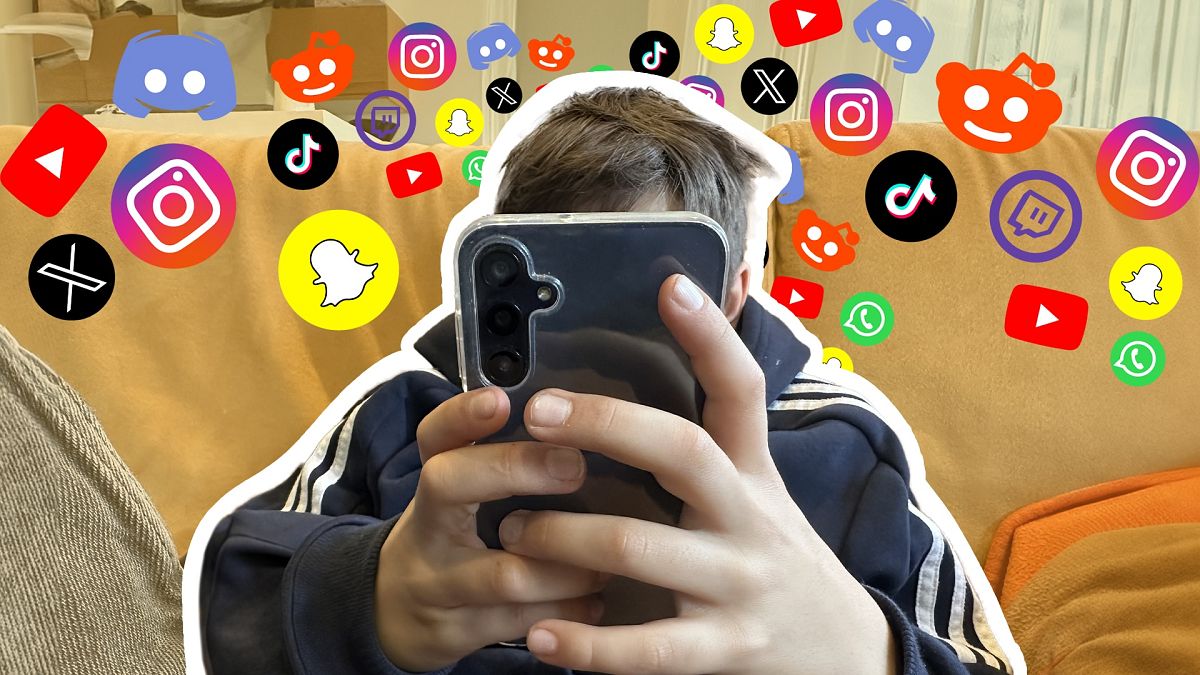Screen addiction among young people is seen as an excessive and compulsive use of smartphones, tablets, computers, TVs and gaming consoles.
Teenagers globally are spending an average of 7 hours and 22 minutes per day in front of screens.
Excessive screen exposure for children younger than 3 years old may negatively impact their brain development. And recent research shows screen addiction for those aged 9 to 11 could increase the risk of developing suicidal behaviour.
To protect minors and adults, since 2024 all digital platforms in Europe must comply with the Digital Services Act, a set of EU-wide rules, aiming at creating a safer online environment.
In France, smartphones have been banned in schools since 2018, but the rule is largely ignored. However, some schools are taking stricter measures. The Marcel Pagnol public school, southwest of Lyon, is one of 200 French middle schools that have been testing the so-called “digital break” since the beginning of the school year.
At 7:30 in the morning, first-year middle school pupils (aged 11–12) must leave their phones at the entrance. Older students may keep their phones but are not allowed to use them during school hours. The school’s headmaster explains that confiscating smartphones has proven to be the most effective way to enforce the ban.
“The idea was to curb this addiction as early as possible during school hours, and with students aged 11-12, I haven’t had a single issue related to mobile phones since 1 September.”
“Meanwhile, in the fifth, fourth, and third grade, we’re still dealing with incidents; trying to sort out whether a photo was taken or not, often in very complicated circumstances involving students who are completely addicted to these devices.”
The smartphone ban is almost unanimously accepted among students.
“School is what takes away some of our screen time,” said a 12-year-old girl.
A Spanish language teacher said digital breaks also reduce incidents of cyberbullying, a growing problem that affects one in six students in Europe, according to a recent WHO study.
“This year, we made the annual prom dance phone-free, and it was like magic,” explains Spanish Teacher Sophie Atallah.
“They felt free to dance and to be themselves. They weren’t worried about how pictures of them were going to be used or manipulated.”
Parents all over Europe are also taking action against screen addiction. In Lyon, mother of two Marie-Alix wrote a book on the topic and the Facebook group she set up five years ago now has over 20,000 members.
“When I’ve given talks to children – at school – some came up to me saying: ‘I just can’t stop’. It’s like an alcoholic who says yesterday I knew I didn’t want to drink but I drank anyway.”
Green MEP Kim Van der Sparrentak has long been calling for stricter regulations on big digital platforms in Europe.
As the Rapporteur on the Addictive Design in Digital Services Report, she argues that the Commission should take a firm stance within the Digital Services Act by banning the most addictive algorithms, particularly those based on clicks and interaction.
“No human brain can handle those algorithms,” she pointed out.
A healthy relationship between minors and technology requires the involvement of several actors, including institutions, schools, and families— all struggling to put the right rules in place or have them observed.
One key question remains: to what extent will web giants be willing to challenge their own business models to protect the mental health of their young users?
Read the full article here


